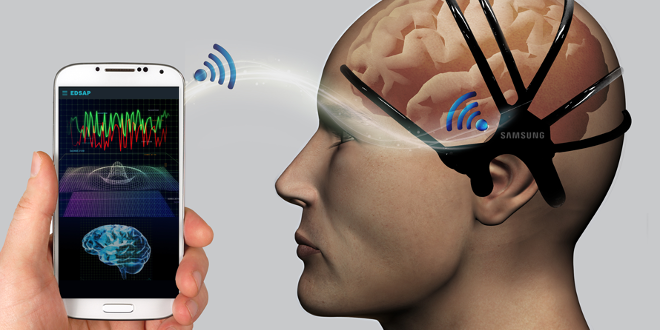2 years ago a group of engineers working for Samsung got the opportunity to work on a project of their own choosing. Their goal was to create a wearable system that could detect the early signs of a stroke. This month they revealed a working prototype of their solution, the Early Detection System and Algorithm Package. This solution contains a powerful array of sensors, as well as an algorithm to interpret the data. This can be used as an early warning system to let someone know if they need to visit their doctor.
EDSAP has a number of sensors attached to a headset worn by the user. These sensors monitor the person's brainwaves and transmit that data to a mobile phone. An app on a phone will then run the algorithm and determine how likely the person is to have a stroke. All this is done within 60 seconds. While it is primarily intended for stroke detection, the system can also be used find out other details about a person's mental health, such as stress, anxiety, and sleep patterns.
EDSAP has some features that make it better than existing technologies currently on the market. Its speed at scanning and analyzing brain waves is far greater than the 15 minutes required by brain wave scanning equipment found in most hospitals. It also provides some convenience to the end user. The unique, highly conductive, rubber-like material used in the sensor removes the need to rub saline solution on a person's head, which is required for other sensors to function. This material also allows the sensors to take on all sorts of shapes and sizes. While the current prototype is in the form of a headset, there is also the possibility of attaching the sensors to things like glasses or hairpins, to make them inconspicuous.
While the technology shows promise there is still a lot of work that has to be done before the product is ready for full clinical trials. However the team at Samsung believe that they have created something worthy of attention by the medical community. They have also put forth the possibility of developing this tech to monitor a person's heart as well. Brain waves are very faint compared to the electric signals of the heart, and if the sensors are capable of picking up brain waves, then heart monitoring should be within its capabilities as well.
What effect do you think this technology will have on the field of medicine? Would you buy the EDSAP to monitor your own brain waves when it eventually reaches the market? Leave your comments below.







